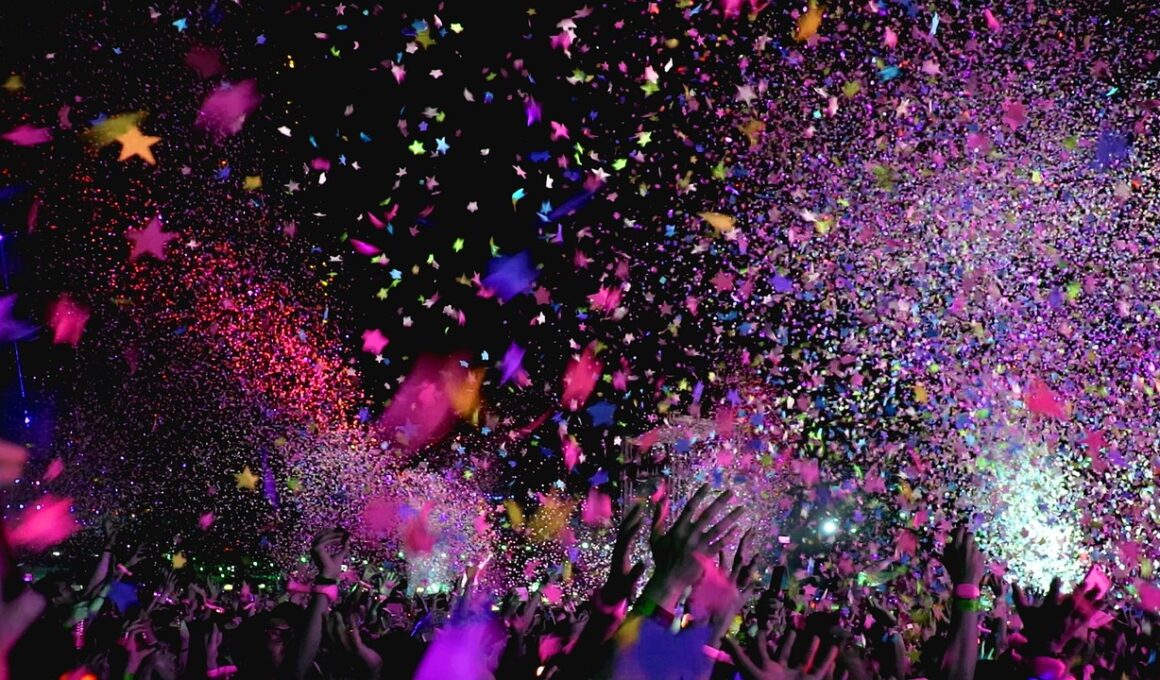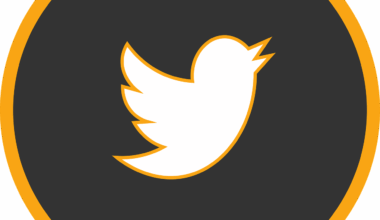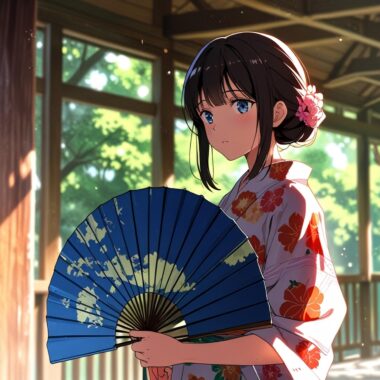The Evolution of Fan Fiction in User-Generated Content Platforms
Fan fiction has grown substantially over the past two decades, facilitated by user-generated content platforms. These platforms allow writers to explore alternate narratives and engage with established characters in novel ways. Initially, fan fiction thrived on dedicated websites and forums, where communities formed around shared interests. Today, platforms like Wattpad and Archive of Our Own have revolutionized how fan fiction is shared and discovered. The rise of social media further accelerated this trend, as users could promote their stories easily and connect with readers. Digital accessibility means fresh perspectives can flourish within established universes. The blend of original content and fan-driven narratives exemplifies the creative potential inherent in user-generated content spaces. This evolution highlights reader engagement, as fans are not just consumers but also creators. Many original works now draw inspiration from fan-created narratives, indicating a dynamic relationship. This interdependence showcases how fan fiction enriches the larger storytelling landscape, influencing all media formats. Furthermore, as more writers emerge from these platforms, the distinction between traditional authors and fan fiction creators blurs. Thus, the landscape of writing continuously shifts, reflecting contemporary societal interests.
The Role of Community in Fan Fiction
Community plays a crucial role in the creation and proliferation of fan fiction across various platforms. Fans come together to create not only stories but also a sense of belonging among one another. When writers share their work, it opens the door to discussions, feedback, and the collaborative editing process, fostering improvement and creativity. The interactive nature of fan fiction communities enhances dialogue surrounding character motivations, plot avoidances, and thematic explorations. In addition, communities often host challenges and prompts encouraging writers to step outside their comfort zones. Recognition through comments, kudos, and awards validates authorship, boosting confidence and inspiring members to write more compelling narratives. As readers engage with these works, they contribute to the dialogue, influencing how stories develop over time. Different genres within fan fiction reflect community preferences, articulating the collective values and desires of participants. This friendly competition encourages high-quality writing and the exploration of diverse viewpoints, ultimately broadening the creative landscape. Moreover, the supportive environment of fan fiction communities enhances collaboration, leading to remarkable results that may not otherwise emerge in isolation.
The accessibility of online writing platforms has dramatically democratized fan fiction’s reach and impact. Anyone with internet access can write, read, and share stories, breaking down barriers imposed by traditional publishing. This ease of access fosters a diverse range of voices, empowering marginalized writers to explore their perspectives within beloved universes. Inclusive themes and representation abound, reshaping narratives typically restricted by conventional norms. Writers can reinterpret character backgrounds, gender identities, and cultural contexts, giving rise to richer, varied storytelling possibilities. As platforms implement tagging systems, readers can easily discover works that resonate with their interests. Anonymity also plays a key role, allowing authors to experiment without fear of judgment. The ability to share works instantly opens possibilities for immediate feedback, making iterative improvements easier. Consequently, the rapid evolution of writing skills is prevalent in the fan fiction community. Additionally, these platforms often integrate multimedia elements like art and music, enriching the reading experience. While traditional publishing remains significant, user-generated content platforms are increasingly recognized for their contributions to storytelling evolution, marking a shift toward inclusivity that is here to stay.
Impact on Original Works
Fan fiction has not only transformed communities of writers but has also had profound implications for original works in popular culture. As fan-created stories proliferate, original authors may feel compelled to acknowledge or incorporate fan interpretations into their works. The mutual influence highlights the collaboration between creators and fans, enhancing the richness of storytelling. Some publishing companies have started to integrate user-generated content as part of their marketing strategies, recognizing the value fan fiction offers in gauging audience reactions. Fan interpretations can lead to direct consequences, such as reboots, sequels, and adaptations sparked by the community’s enthusiasm. Prominent series like “Star Wars” and “Harry Potter” show how fan culture can shape media landscapes dramatically. This interaction also showcases the fluidity of ownership and authorship in contemporary storytelling, blurring boundaries. The traditional narrative format succumbs to a more fragmented yet interconnected approach allowing engaging explorations of themes that resonate with audiences. Further, as fan fiction continues to influence mainstream narratives, companies are likely to leverage this creativity to maximize engagement and expand their intellectual properties beyond conventional parameters.
Legal issues surrounding fan fiction represent another complex dimension of this evolving landscape. Copyright concerns are often at the forefront as fan writers navigate the fine line between homage and infringement. While many original creators initially view fan fiction skeptically, some embrace it as a sign of engagement and love for their characters and settings. Designers of user-generated platforms typically foster an environment where fan expression is cherished, balancing the need to protect original material and to encourage creativity. To facilitate this balance, fan fiction authors frequently include disclaimers, acknowledging original creators and their copyrights. However, legal challenges can arise, particularly if fan fiction becomes commercially successful. In some instances, powerful copyright holders have pursued legal action against fan creators, impacting their enthusiasm and sense of community. As user-generated platforms continue to grow, discussions about morality and legality become increasingly critical. Expanded dialogue surrounding fan fiction legality is essential for advancing cultural understandings and fostering resilience among fan communities. Moving forward, navigating these boundaries will require both vigilance and collaboration amongst creators, readers, and stakeholders.
The Future of Fan Fiction and User-Generated Content
The future of fan fiction in user-generated content platforms appears bright, driven by evolving technology and audience expectations. As augmented reality and virtual reality become more mainstream, new storytelling methods may emerge, inviting audiences to engage more intimately with familiar narratives. Writers could incorporate interactive elements into fan fiction, allowing readers to influence the story’s direction. The potential for collaboration across media such as video games, film, and literature expands the landscape for fan fiction, creating piles of new opportunities for expression. As the gaming landscape also integrates user-generated content, fans could become co-creators of their favorite content, shifting the traditional relationship with their preferred media. Furthermore, the continued rise of social media will keep facilitating connections among fans and authors, unveiling digital events showcasing creative talent. As fan fiction evolves as a recognized form of literature, it could even enter academic discourse, enriching educational settings. The cross-pollination of ideas between different media formats could foster unimaginable creativity while sparking discussions about complex themes and core values. Above all, as the variables defining storytelling shift over time, fan fiction will only become more integral to global culture.
The evolution of fan fiction within user-generated content platforms encapsulates a dynamic interplay between creators and audiences. Engaging with beloved universes, authors rewrite narratives, revise character arcs, and explore themes that traditional media may overlook. As cultural conversations evolve alongside technological advancements, fan fiction maintains its relevance in reflecting societal values and narratives. This practice not only drives innovation in storytelling but also facilitates community-building and mutual appreciation among writers and readers. As the lines between professional and amateur blur, the creative ecosystem continues growing richer and more diverse. Fan fiction encourages marginalized voices to matter, reshaping narratives within the broader cultural context while pushing boundaries. The ongoing discourse will inspire adaptation to new formats, encouraging exploration beyond established norms. As fan fiction evolves, it remains a testament to the power of collaboration and creativity. As digital accessibility paves the way for new stories, the future promises to redefine how we perceive authorship, representation, and themes in storytelling. Ultimately, fan fiction is here to stay—its evolution will persist as it remains an integral force shaping the narratives of tomorrow.
In conclusion, the evolution of fan fiction in user-generated content platforms showcases how creativity thrives in collaborative environments. These platforms have enabled a wealth of storytelling possibilities, inviting diverse perspectives. The impact of community engagement shapes authorship and provides valuable feedback, enhancing narrative quality. While challenges persist, particularly relating to legal issues, fan fiction continues to flourish as a valid form of expression. The future of these narratives promises further innovation, perhaps integrating new technology to transform storytelling experiences. The interconnectedness of fan art, fan fiction, and media adaptations redefines how we consume and create narratives across formats. As this cultural phenomenon unfolds, the recognition of fan fiction’s contributions to literature becomes more relevant. Future writers will undoubtedly benefit from exploring the rich resources provided by these platforms, aiding creativity and innovation. Furthermore, the dialogue surrounding ownership encourages a deeper understanding of collaborative storytelling. The synergy between creators and consumers in fan fiction will undoubtedly shape the media landscape as we progress. It will cultivate new narratives extending beyond mere homage, culminating in a broader understanding of our global narrative heritage.





